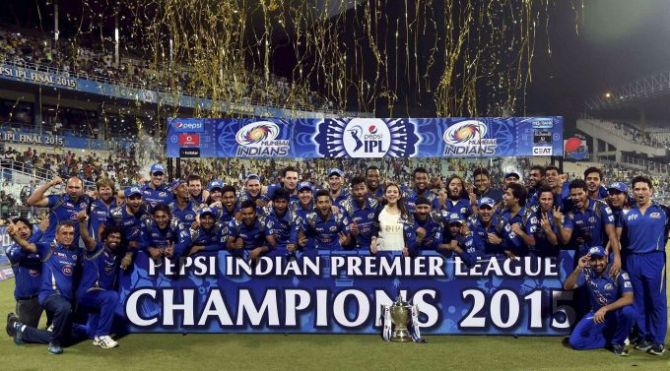‘Attendances in most series have fallen and the revenues generated from these series are not growing’

The International Cricket Council chief executive David Richardson (left below) is a worried man. The South African warned that the growing popularity of the domestic Twenty20 leagues like the Indian Premier League, Big Bash and Caribbean Premier League are threatening the survival of bilateral series with the exception of Ashes and big-ticket tours involving India.
To arrest the decline of bilateral series, Richardson said a number of possibilities were discussed at the ICC annual conference in Barbados in June and would again be one of the highlights at the next Board meeting in October.
"Apart from series such as the Ashes -- which has an iconic, traditional status -- and series between India and the top Full Members, many bilateral series are perceived as having little relevance. Attendances in most series, especially for Test cricket, have fallen and the revenues generated from these series are not growing.
"The international cricket landscape has changed over the years and even more significantly in recent times with the advent and success of domestic T20 leagues such as the Indian Premier League, the Big Bash and the Caribbean Premier League.
 These events are attracting widespread support from fans and hence the interest of broadcasters, sponsors and other commercial partners.
These events are attracting widespread support from fans and hence the interest of broadcasters, sponsors and other commercial partners.
"Similarly the interest in and value of ICC events such as the World Cup, the Champions Trophy and World T20 has grown significantly over the last eight years or so. The increase in interest in ICC events and domestic T20 leagues effectively provides competition for the interest in bilateral international cricket series (FTP series)," Richardson told a cricket website.
In order to enhance the appeal of bilateral series, Richardson felt that improved marketing and a more certain and coordinated schedule could be a solution.
"How can we grow interest in bilateral series – bigger crowds, more people watching on television, following the series on their phones, tablets and computers? For this to happen bilateral series need greater context, a clear narrative, improved marketing and a more certain and coordinated schedule," Richardson said.
"What's the use of scheduling a series in the monsoon season or how can you expect to grow the fan base or attract attendances if series are scheduled or changed at the last minute?," he asked.
Richardson also revealed a possible solution that the administrators were thinking was about creating qualifying leagues for both Test and ODIs, an idea that had the support of all the powerful members of the ICC Board.
"Scheduling more tri-series, creating a brand around the FTP and around individual series, creating a fresh brand for the ODI format itself (World Cup Cricket for example, as Wally Edwards is proposing), creation of Test or ODI World Cup Qualifying leagues. These are all ideas that need to be considered and discussed.
"They have been mooted before, but now with the involvement of Mr Narayanaswami Srinivasan as Chairman, the Board of Control for Cricket in India, England and Wales Cricket Board, Cricket Australia and the other members, these issues are being seriously looked at," he said.
"We are just in discussions at the moment. Michael Holding has spoken about a Test league of two divisions, others have previously suggested a six-and-four teams format. But first the principles and then the detail needs to be debated and agreed. I think it is achievable if all the Full Members think it is worthwhile and want it to happen," Richardson explained.
The chief executive, however, clarified that any league system would be independent of the ICC ranking.
"The debate on leagues is still in the drawing board phase, but even if leagues were introduced, the rankings would still coexist. The ICC rankings will always be there. Take international football, for example, they have qualifying leagues for the FIFA World Cup and Continental tournaments, separate to the world rankings," concluded Richardson.











